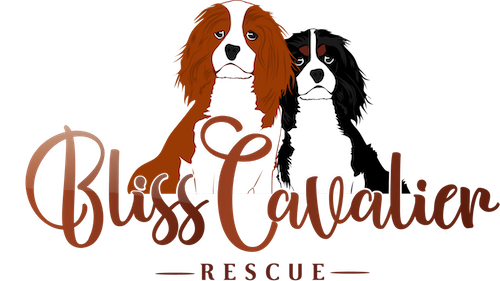Worrying statistics about ‘pandemic puppies’ revealed

Cavaliers at higher risk for life-threatening pyometra
12 March 2021
What will April bring in terms of adoptions?
15 March 2021By now, it’s no surprise to hear the Covid pandemic also resulted in an increase in the number of dogs purchased, and as a result, drove the price of dogs and puppies through the roof. But after a recent study carried out by the Royal Veterinary College (RVC), more worrying statistics have been revealed, highlighting the true extent of this surge in dog purchases and the potential future impact this would have.
Price of dogs increased by 62%
The increase in the price of dogs and puppies has been significant and was one of the first indicators of the ‘trend’ for dogs during the lockdown. The RVC have now confirmed that this increase was in fact 62% (84% in London alone), with the average cost of a puppy rising from £955.43 up to £1549.71.
Certain breeds saw prices increase by 120%. Dachshunds puppies rose to £3k – £4k, Collie puppies sold for around £2600 and some of the ‘fashionable’ breeds and crossbreed breeding bitches, were fetching up to £15,000.
Dog ‘shortage’
The key force in driving up these prices was the perceived shortage of dogs, combined with peoples’ ‘need for something happy to focus on’ during the lockdown. The study revealed that 1 in 10 who purchased a puppy, had never even considered having a dog before the pandemic hit, and a whopping 76% said their main reason for purchasing a dog, was because they now had the time to spend with them, without considering what happens when life returns to normal.
Enquiries to dog rehoming centres suddenly doubled. In October 2020 alone, The Dog’s Trust had 19,222 enquiries, and as the price of dogs increased, the number of people giving their dogs up for adoption dropped.
Rather than handing their dog over to a rehoming centre, they chose to sell instead. Rather than going on a reputable breeders’ waiting list, people chose to buy dogs online. The perceived shortage drove prices up and allowed unscrupulous sellers to cash in.
Increase in illegal imports
As the price and demand for dogs surged, this also meant the illegal importation of puppies also increased. Despite the introduction of Lucy’s Law, which meant that puppies could no longer be sold via 3rd party sellers and could only be purchased directly from breeders or adoption centres, the country was flooded with illegally imported puppies.
The pandemic resulted in final destination checks, which were previously carried out by the Animal and Plant Health Agency, stopped, allowing thousands of puppies to illegally enter the UK. There was in fact, a 66% increase in the number of dogs imported between 2019 and 2020.
It goes without saying, buyers who purchase imported dogs have no true way of knowing the conditions the dog was bred in, their background or parentage, what medical checks, if any, were carried out, and even the true age.
Change in owner profile
Since the puppy pandemic began, the RVC research has shown a marked changed in the profile of new dog owners. They’re more likely to never have had a dog and therefore have less knowledge about a dogs’ needs or behaviours. They’re more likely to be young families, more likely to be less knowledgeable about dog health and therefore less likely to be able to cope with any potential health issues. They are also more likely to be unaware of any potential health or behavioural issues which may occur when normal life resumes.
The RVC research showed that new owners were also more likely to purchase a puppy based on a short video clip, and either have their puppy delivered or collect from a sellers’ doorstep. Shockingly, a quarter of dogs bought in 2020 were purchased without the new owners seeing the mother, allowing puppy farms and unscrupulous breeders to thrive in this period.
In short, many new dog owners in 2020 are sadly some of the most poorly suited to dog ownership, and lockdown created the perfect conditions for puppy farms and irresponsible breeders.
You don’t need a crystal ball to see that although many dogs will have undoubtedly found a perfect, loving home, there will be a huge number of dogs that will be abandoned, sold on or handed over to rescue in the months and years to come. Even dogs that remain with their owners may require additional behavioural training in order to help them cope with the change of routine and lifestyle.
What is in store for the pandemic’s puppies?
Rowena Packer, who led the RVC study and is a lecturer in companion animal behaviour and welfare science, explained that many new owners will require increasing support to ensure their new family members are able to adjust to any changes in their households. They will also more than likely need support, if and when and health conditions in their dogs’ manifest.
The study revealed that the health of a puppy was a lower priority for those who purchased a dog in 2020. Many admitted they did not search for breeders that carried out health testing nor did they ask breeders for health test results when purchasing their dog.
Ms Packer said: Many inherited diseases might not manifest until dogs are a couple of years old so there is a real need for increased vigilance from owners for potential emerging health problems and making sure owners are aware of clinical signs of disease that might be prevalent in the breed or crossbreed they own.”
She also advised that if appropriate training and preparations could not be put in place to prepare dogs for the future, then identifying any dogs that could not cope with a drastic change in lifestyle, was key.
She continued: ‘We risk a wave of relinquishment as restrictions are relaxed as people are inevitably called back to offices which may or may not be dog‐friendly….Right now, behaviour training to prepare some of these puppies for the really dramatic lifestyle changes they will face during 2021 is really key to try to keep, where possible, those puppies at home, but also to identify those dogs that would be better off being relinquished.’
Notice: Trying to access array offset on value of type null in /var/www/vhosts/blisscavalierrescue.org/httpdocs/wp-content/themes/betheme/includes/content-single.php on line 286




